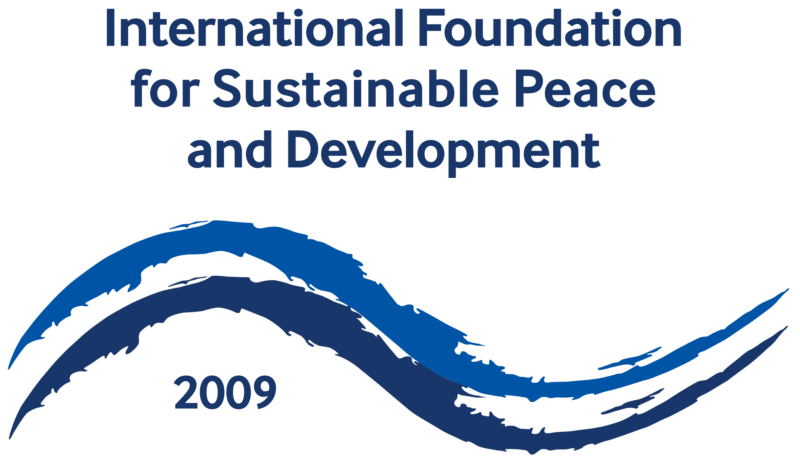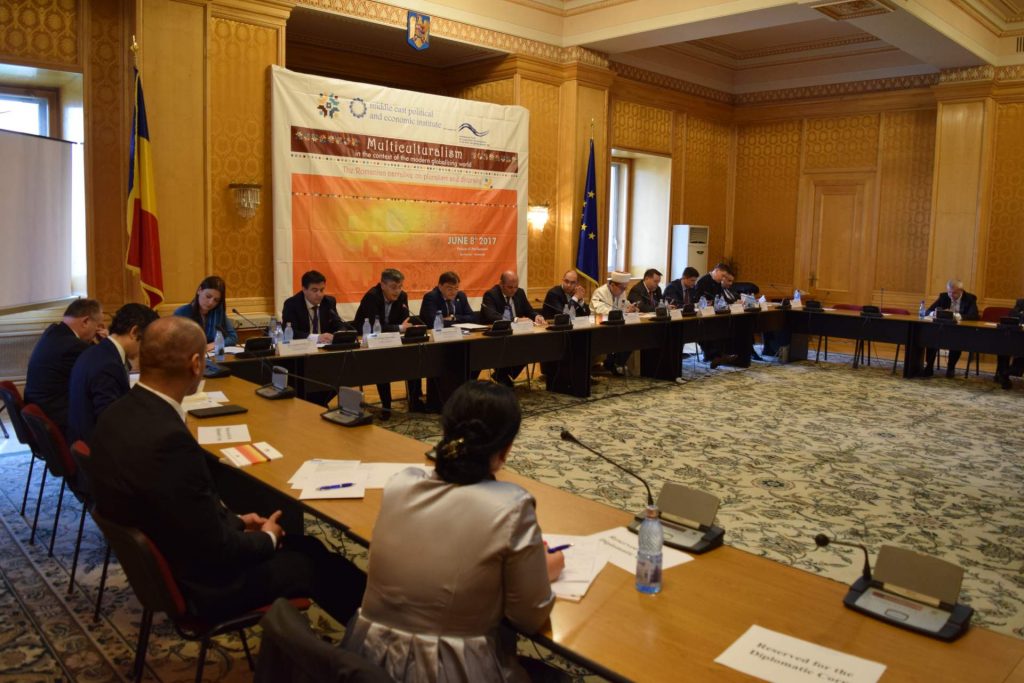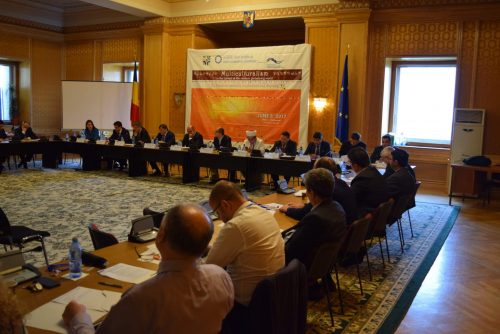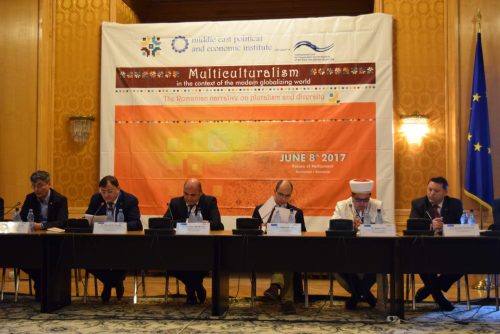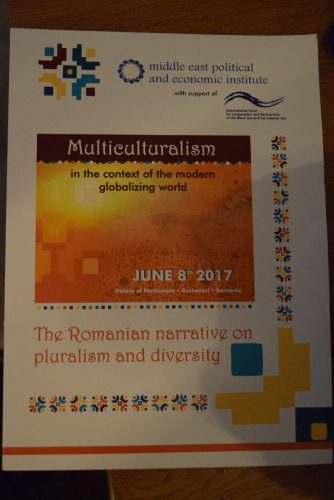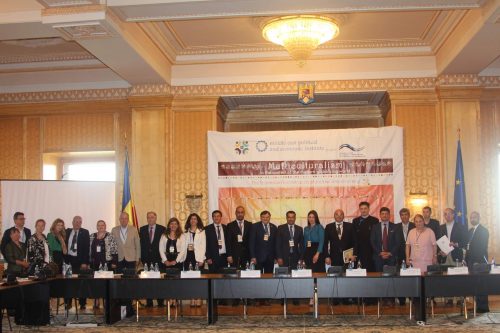The International Fund for Cooperation and Partnership of the Black Sea and Caspian Sea (BSCSIF) together with the Middle East Political and Economic Institute (MEPEI) has launched the report “Multiculturalism in the context of the modern globalizing world. The Romanian narrative on pluralism and diversity”. This report is the result of the 6 month research project implemented by BSCSIF in cooperation with MEPEI.
The launching event took place in Bucharest, on 8th of June 2017, at the Romanian Palace of Parliament. Almost 90 governmental, diplomatic, cultural, academia personalities and also experts on the topic have participated at the event.
The main speakers were Drd. Flavius CABA-MARIA, President of MEPEI, Mr. Virgil POPESCU, PhD, Vice-Chairperson of the Permanent Committee for Industries and Services, the Parliament of Romania, Mr. Dinu SOCOTAR, PhD, Member of the Permanent Committee for Culture, Arts, Mass Information Means, and Vice-Chairperson of the Friendship Parliamentary Group Romania – the Republic of Azerbaijan, the Parliament of Romania, H.E. Mr. Farid ABDINBAYOV, Ambassador of the Republic of Azerbaijan to Romania, Mr. Cătălin RAIU, PhD, adviser of the state secretary for religious affairs, Government of Romania, Murat YUSUF, the Mufti of the Muslim Community in Romania, Mr. Laurențiu TĂNASE, PhD, former secretary of state, lecturer at Faculty of Orthodox Theology, University of Bucharest, Romania, Rev. Dr. Valentin ILIE, Center for Studies and Interreligious and Intercultural Dialogue, Faculty of Orthodox Theology “Patriarch Justinian”, University of Bucharest; Mr. Cătălin BUCIUMEANU, PhD, former adviser on the culture and cults of the Romanian Presidency and president of Advanced Strategy Center.
The concept of multiculturalism has already a global meaning, as it has been for a few decades in the center of philosophical, sociological and political talks. It puts into discussion, in the context of the new social and identity dynamics generated by globalization, a new order and stability centered on the persistence of the model and virtues of the nation-state. It is more and more invoked, being perceived as a solution or as a threat, in the attempt to refurbish a more and more complex reality, based on pluralism and interdependence of cultures, ethnic groups, and multiplicity of individuals.
The general issues of multiculturalism and diversity are managed officially in Romania, above all, through the perspective of national and religious minorities. The history and geographic position made it possible, through centuries, that on the Romanian territory, many populations settled and joined the native Romanian background, contributing to its identity, cultural and linguistic genesis. In this context, the report highlights Romania’s experience as an example of diversity and tolerance.
